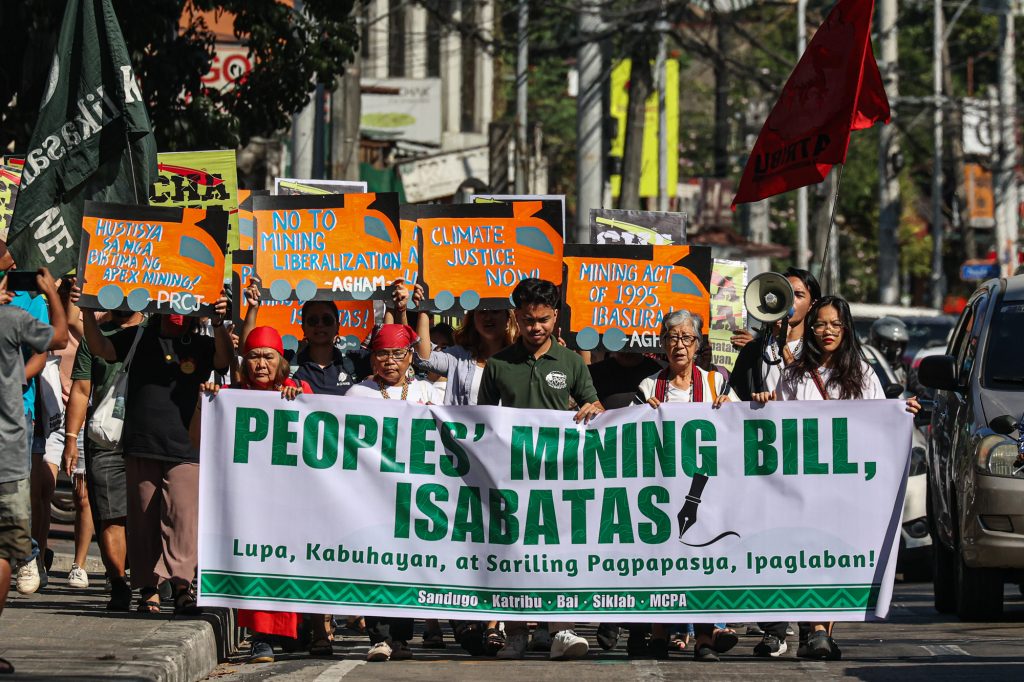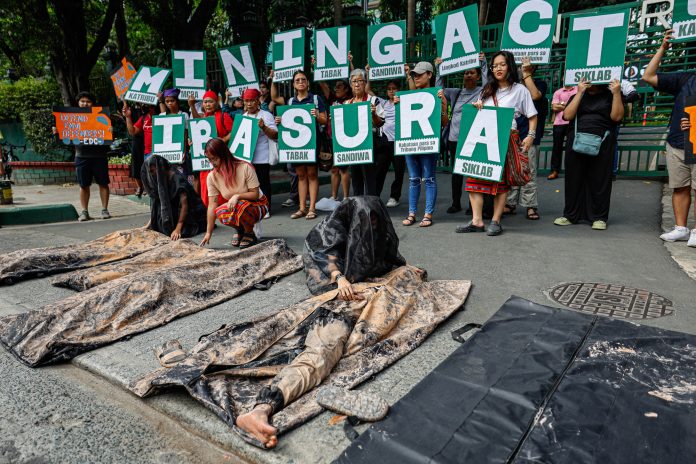Pro-environment and Indigenous Peoples groups marked the 29th year of the Philippine Mining Act with a renewed call to replace the law with “an alternative mining framework that will heavily regulate the mining industry.”
Kalikasan People’s Network for the Environment (PNE), claimed the Mining Act of 1995 “has done little” for the country “but wreaked havoc on our ecosystems and communities.”
Jon Bonifacio, national coordinator of the group, urged the passage of the People’s Mining Bill that will regulate the industry and “ensure accountability can be sought and achieved in the case of mining-related disasters.”
Bonifacio made the call during a protest mobilization at the Department of Environment and Natural Resources in Quezon City on March 4.
Kalikasan PNE called for justice for the victims of the landslide that killed nearly 100 people in a mining site in Masara village in Maco town, Davao de Oro province in the southern Philippines on Feb. 6.
In a separate statement, the group said while the mining company “distanced itself from the disaster and evaded accountability” the communities, including mine workers themselves, “are constantly exposed to these disastrous conditions.”

The landslide in Maco was not the first mining-related incident in the country. Kalikasan PNE said that “liberalized mining plunder” that “has led to disaster” also happened in “the Marcopper incident in 1996 in Marinduque, the Philex mining disaster of 2012, and the Benguet Corporation landslide in Itogon in 2018.”
Bonificao also decried that while there is a rise in the number of mining projects in the country, “cases of mining-related violence and human rights violation, particularly on environmental defenders, have heightened.”
Indigenous group Katribu lamented that the existing mining law “has not yielded any positive progress” but rather “facilitated the surrender of national patrimony to avaricious foreign corporations.”
Beverly Longid, national convenor of Katribu, said while the law “does not guarantee 100% foreign ownership of mining companies, it does grant leases of the country’s lands to foreign corporations for 25 years, renewable for an additional 25 years thereafter.”
She said mining-affected communities are mostly Indigenous and Moro Peoples “where lands have been protected and enriched for centuries.”









